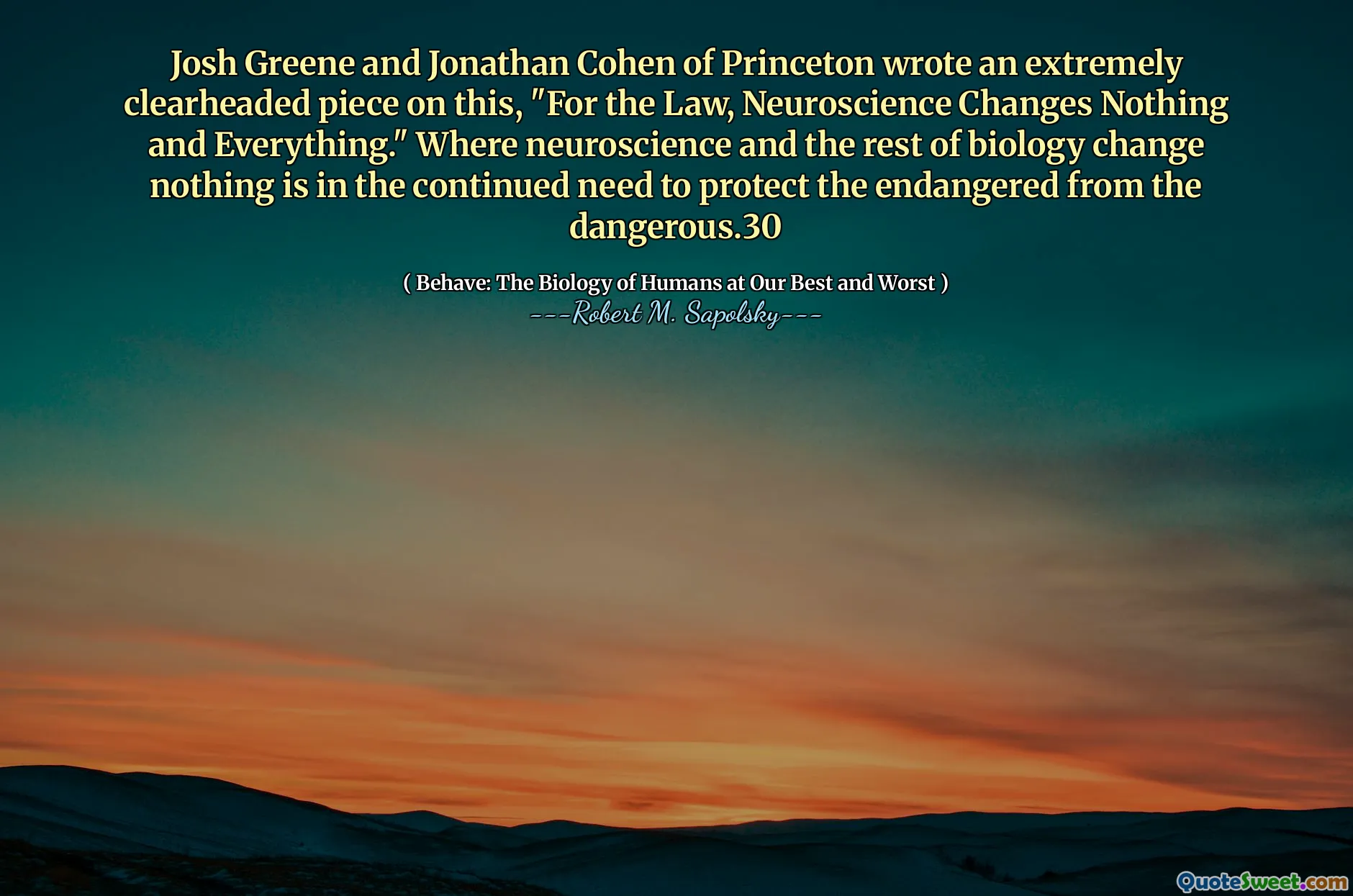
Josh Greene and Jonathan Cohen of Princeton wrote an extremely clearheaded piece on this, "For the Law, Neuroscience Changes Nothing and Everything." Where neuroscience and the rest of biology change nothing is in the continued need to protect the endangered from the dangerous.30
The quote from Greene and Cohen emphasizes a nuanced perspective on the impact of neuroscience on legal and social frameworks. Their assertion that neuroscience changes nothing yet everything highlights the paradoxes inherent in integrating biological insights into human affairs. On one hand, neuroscience provides profound insights into the brain's mechanisms, potentially revolutionizing our understanding of behavior, responsibility, and morality. Such scientific advancements could influence how we assign culpability or develop rehabilitation programs. However, the authors argue that, practically, these discoveries do not fundamentally alter the core principles of law or societal norms—especially the enduring necessity to safeguard vulnerable populations, such as the endangered, from destructive individuals. This points to a balance between scientific progress and ethical steadfastness. Scientific insights may deepen our comprehension but do not automatically translate into moral or legal overhaul. Instead, they serve as tools that, when applied judiciously, can reinforce or refine existing principles. The persistent importance of protecting society from dangerous individuals remains unaffected by neurobiological explanations. It is a reminder that, despite remarkable scientific progress, the core values of justice, safety, and empathy continue to guide our actions. This perspective encourages a cautious and thoughtful integration of neuroscience into law and policy—recognizing its potential without overestimating its capacity to overhaul fundamental social commitments. Ultimately, it underscores the importance of preserving humanistic principles amid scientific advancements, ensuring that progress serves to enhance societal well-being without undermining core ethical standards.










